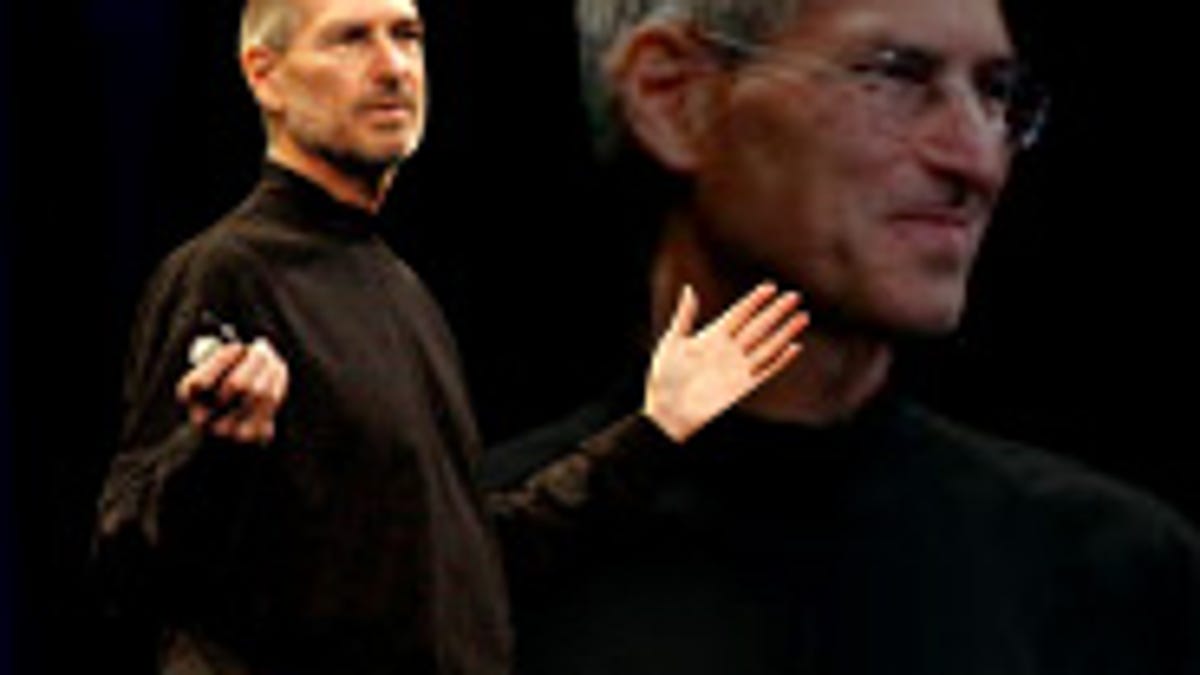Steve Jobs' absence not deterring Apple gear buyers
The resignation of Apple's longtime CEO has made only 4 percent of consumers "less likely" to buy Apple products, according to new research.

Steve Jobs' resignation as CEO of Apple will have only a small impact on the company's sales, a new study by ChangeWave Research has found.
According to the research firm, which surveyed 2,297 consumers between September 6 and September 12, just 4 percent of respondents said that they would be "less likely" to buy Apple products in the future, now that Jobs is no longer CEO at Apple. A whopping 89 percent of respondents, on the other hand, say that Jobs' resignation will have "no effect" on their purchasing plans.
The 4 percent figure is the lowest it has been since Jobs took his first leave of absence, and substantially lower than the high mark set in 2008. At that time, according to ChangeWave Research, 18 percent of respondents said that they would be less likely to buy Apple products if Jobs had stepped down at that point. In February of this year, that figure stood at 7 percent.
"The results suggest that Jobs' previous absences have had an 'inoculating' effect that over time has allayed consumer concerns on whether the company could operate at the same level without Steve Jobs at the helm," ChangeWave Research said in a statement yesterday announcing its findings.
Related stories:
• Apple posts $28B quarter, announces Lion launch
• Steve Jobs steps down from Apple
• Text of resignation letter from Steve Jobs
Apple co-founder Jobs resigned as CEO last month, recommending that his chief operating officer, Tim Cook, become the new chief executive. The board approved Jobs' recommendation, and also made Jobs chairman.
ChangeWave's findings seem to indicate that consumers are just as optimistic about Apple's future as Jobs seemingly is. In his resignation letter, Jobs wrote that he believes "Apple's brightest and most innovative days are ahead of it."
Of course, it also helps that the products Jobs brought to the market are still wildly popular among consumers. In fact, ChangeWave found that iPad demand is easily overshadowing demand for any other tablet on the market. Last month, 85 percent of respondents in a separate ChangeWave survey of 2,969 consumers said that they plan to buy the iPad instead of any other tablet. Just 4 percent of respondents said that they would opt for the Samsung Galaxy Tab, while the BlackBerry PlayBook from Research In Motion captured the attention of 2 percent of respondents. Just 1 percent of consumers said that they will buy the Motorola Xoom.
If those figures hold up, it could mean continued good times for Apple's iPad. Over the last several quarters, the device has been flying off store shelves. In fact, during the last-reported quarter, ended June 25, Apple sold 9.25 million iPads, representing a 183 percent increase over the same period last year.
Although there are several reasons people are buying iPads, ChangeWave believes a key component in that decision is owner satisfaction. Based on its findings, 70 percent of consumers who own iPads are "very satisfied with the device."
That figure stands in stark contrast to buyers of other tablet. According to ChangeWave, just 42 percent of folks who bought other tablets are "very satisfied" with their purchases.

